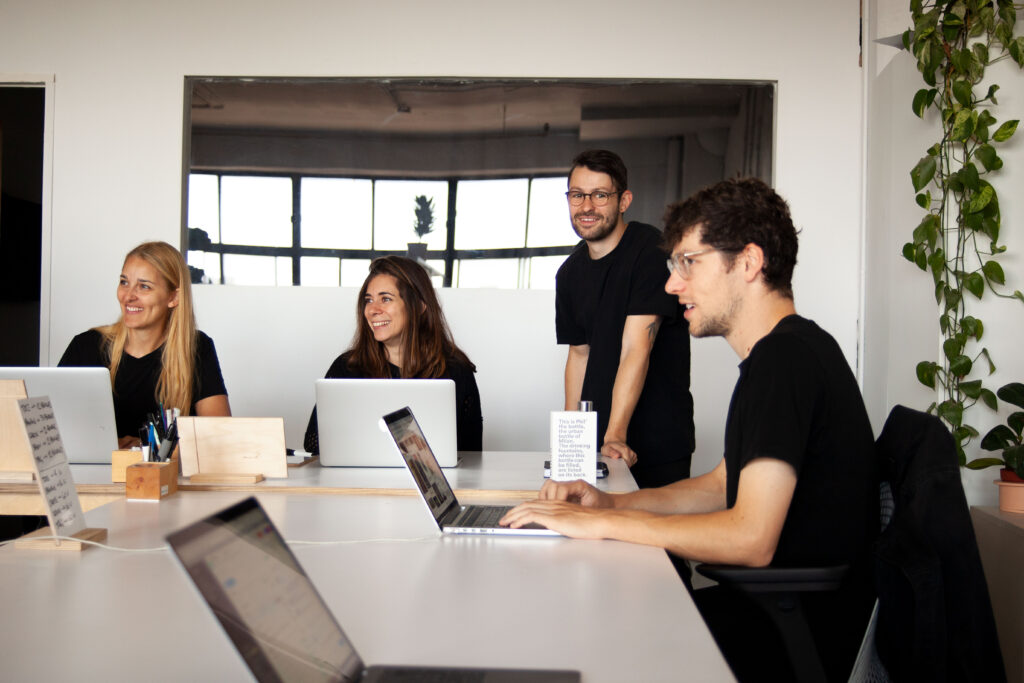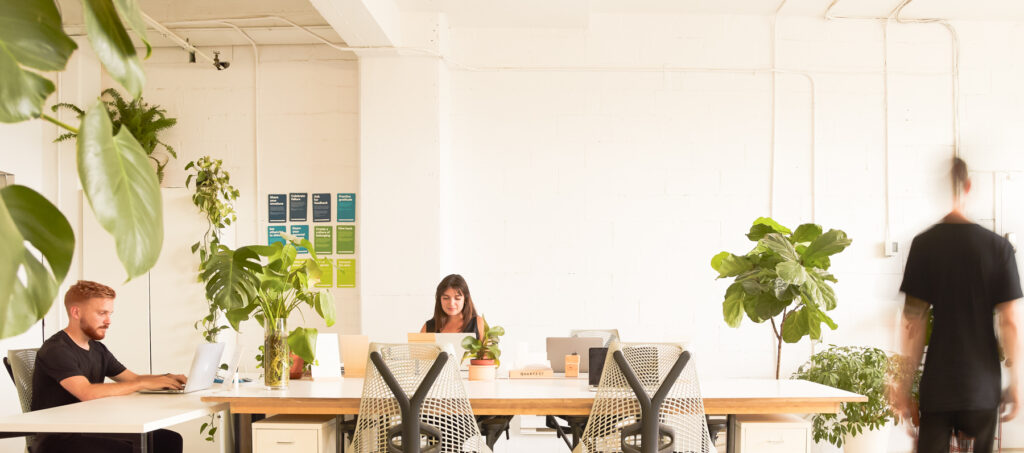
- Entrepreneurship
- Social impact and sustainability
Céline Juppeau of Kotmo: Staying true to company values in a crisis
In November 2019, we asked Kotmo founder Céline Juppeau about what defines a “local product” (read the article).
She spoke to us with conviction and enthusiasm about Kotmo’s values and her choice to develop, produce and market unique and sustainable promotional items, made in Quebec, with the emphasis on educating business owners on the positive impact that their actions can have on society, the economy and the environment.
We caught up with Juppeau a year later, in a social and economic context profoundly transformed by COVID-19.
In March 2020, Kotmo was in full growth mode – but overnight, the events sector had to stop all activity, and the company’s partner factories were forced to close.
On top of the loss of a significant number of customers, Kotmo, which at the time had no finished inventory, found itself without any items to sell. It was a blow for the entire team, and a considerable weight on the shoulders of Juppeau and her partner, Cindy Couture, who were responsible for the future of the company and their six employees.
Still, they didn’t miss a beat. Quickly, the team decided to use the coming months to review the company’s strategy and create a sustainable action plan aligned with the company’s values.
Question your vision and values
“The start of the crisis was a special period that enabled us to reflect on our model, but also to consolidate our corporate vision and to rely on it to make the right decisions,” Juppeau says.
“Through Kotmo, we believe that we provide a solution to the challenges of sustainable development by placing people and design at the heart of an innovative transformation for companies, building an economy responsible for its community and our planet.
“We know the company is here to stay. Looking at things in this light invites us to take another look at the difficulties and challenges that we encounter.”
Crisis or not, promotional items remain a powerful way to communicate – to “convey a message, a vision, or even to offer thanks,” Juppeau says.
“When the factories were able to reopen in May, our activity resumed naturally, because people need to create this kind of link.”
Adapt and renew
Kotmo has adapted in various ways to the crisis – and to the evolution of customer demand.
“In May, our customers asked us for masks. We worked with a manufacturer in Beauce that offered great value for money in order to meet this new need,” Juppeau said. “In the end, that allowed us to not only serve our usual customers but also develop a new clientele who were at first attracted by the masks, but now ask us for gifts for their clients or their employees.”
Starting in the month of April, the Kotmo team envisioned itself in the middle of a long-term crisis, anticipating the probability of a second wave in autumn and another shutdown of the manufacturing sector.
“From there, we decided to create a new range of products during the summer that we would keep in stock. That would allow us to support the local economy by reconnecting with our manufacturers, but also by creating new partnerships – particularly by working with illustrators from Quebec for the first time.”
And so, a new series of eight limited-run promotional objects – coasters, slippers, socks, chocolate, cookie cutters, posters, cards and candlesticks – was born.
“Through this line, the story of the extraordinary year we are living is told – our story. We wanted it to reflect Kotmo’s values of equity, inclusion, and collaboration.”
The inventory is being stored by a Kotmo partner organization, a social reintegration company in Quebec. The objects are sold in the form of a set, and are accessible via Kotmo’s new, purpose-built online sales platform.
Review your financial strategy
Before the crisis, Kotmo’s cash flow was strong – an undeniable asset when it came to overcome the period of business inactivity, but still not enough to fund the overhaul of their product line.
Juppeau relied on the advice of her mentor from the banking sector to make financial decisions, particularly when it came to the launch of their new product range and website redesign. Government financial aid was crucial in making investments and maintaining jobs.
Quebec’s PATME training, which offered support to companies and individuals experiencing business reduction due to COVID, enabled the team to advance in understanding the company’s finances and to put in place a sustainable financial strategy.
“Until now, we had no knowledge of how our prices were set. Thanks to the training, we created a price catalog for resellers, allowing us to more easily bring in new distributors,” Juppeau says.
“We would not have initiated such changes so quickly if the crisis had not occurred. It gave us the opportunity to structure ourselves to continue to grow. ”
No matter what the coming weeks and months have in store, Kotmo’s future is looking bright.








